If you’ve ever dreamed of sinking your teeth into a roll that’s irresistibly soft, warm, and meltingly buttery, then you’re in for a treat with this Soft and Buttery Parker House Rolls Recipe. These iconic rolls boast a tender crumb and golden crust that perfectly complement any meal—whether it’s a holiday feast or an everyday dinner. Let’s dive into this simple yet classic recipe that fills your kitchen with comfort and makes every bite a little celebration.
Why You Should Make This Recipe
Absolutely buttery and tender: These Parker House rolls are brushed with melted butter before and after baking, giving them that signature soft texture and rich flavor you can’t resist.
Simple ingredients, amazing results: With pantry staples like flour, yeast, milk, and butter, you’ll create bakery-quality rolls without any complicated steps.
Perfect for any occasion: Whether it’s a festive holiday spread, a cozy family dinner, or a picnic, these rolls always steal the spotlight.
Flexible to customize: You can easily tweak the recipe with herbs, cheese, or whole wheat flour for a personal twist that suits your taste.
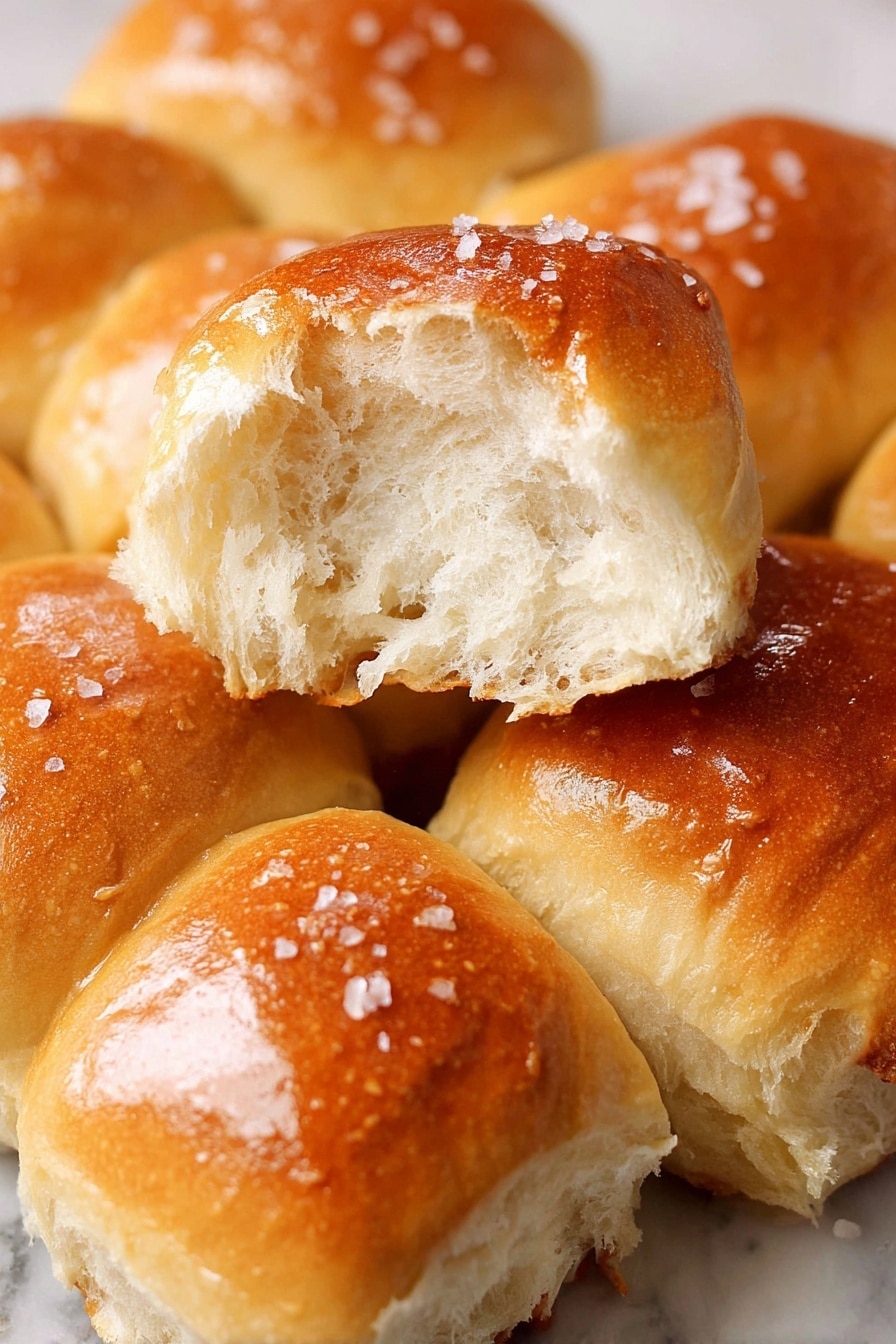
Ingredients & Substitutions
This Soft and Buttery Parker House Rolls Recipe relies on a handful of everyday ingredients that work wonders together—the yeast wakes up the dough, the butter adds lusciousness, and the flour creates that perfect pillowy texture. Each ingredient plays its part in crafting rolls that are delightfully golden and soft inside.
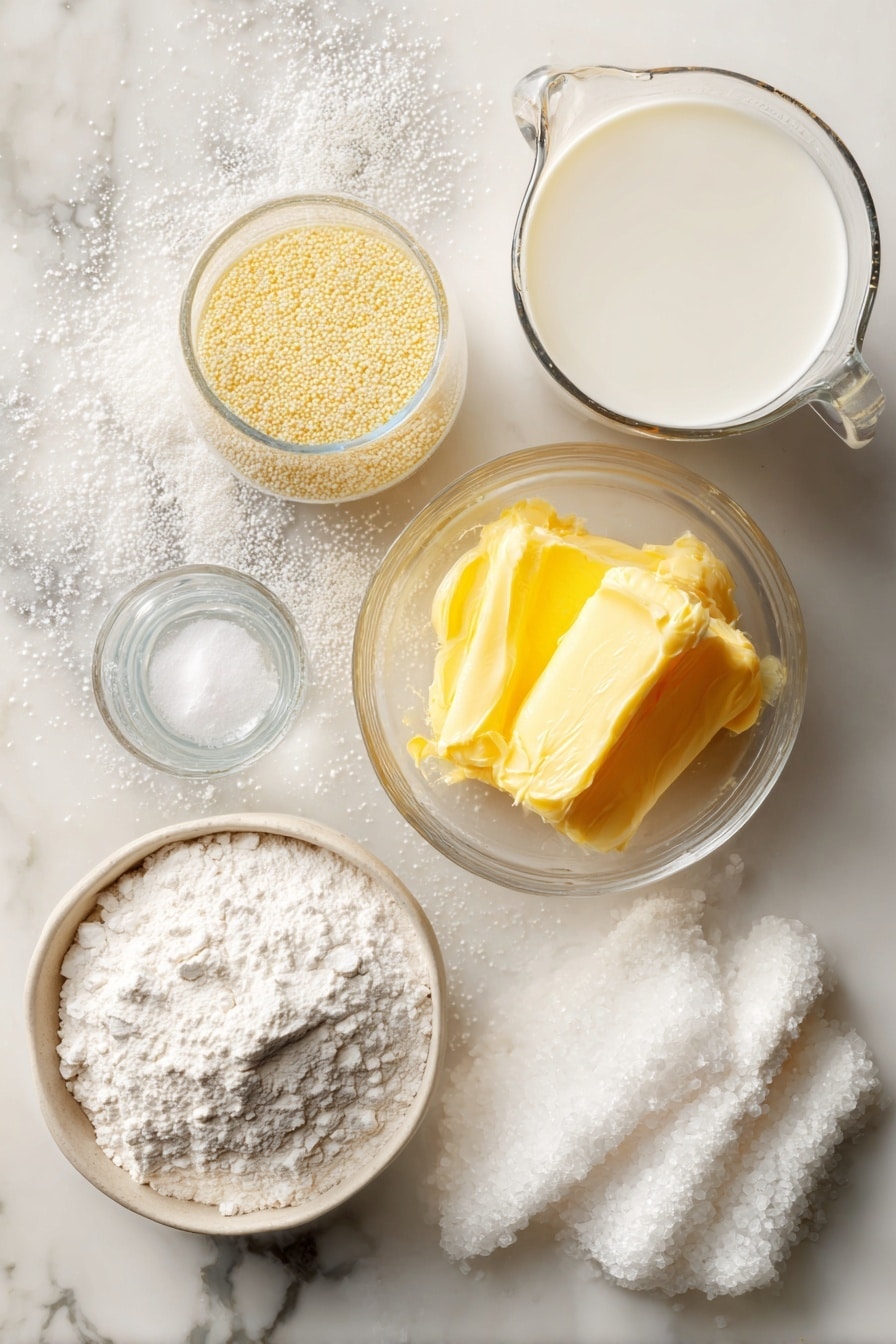
- Active dry yeast: This is what makes the rolls rise beautifully and become light and airy—make sure your water is warm but not hot to activate it properly.
- Whole milk: Warmed to 110°F, it tenderizes the dough and adds richness that water alone can’t provide.
- Sugar: Just enough sugar feeds the yeast and brings a hint of sweetness that enhances the butter’s flavor.
- Salt: Balances the sweetness and strengthens the dough’s gluten structure.
- All-purpose flour: The backbone of the dough, it offers the perfect balance of structure and softness.
- Unsalted butter: Melted butter is mixed in for tenderness and brushed on for that golden, buttery crust you’ll adore.
How to Make Soft and Buttery Parker House Rolls Recipe
Step 1: Activate the yeast
Start by dissolving your active dry yeast in warm water (about 110°F) and let it sit for 5 minutes until it becomes frothy and bubbly—this means your yeast is alive and ready to make magic happen in your dough.
Step 2: Combine wet ingredients
In a large bowl, mix warm milk, sugar, salt, melted butter, and your prepared yeast mixture. Stir gently until the sugar dissolves fully—this mixture forms the flavorful base of your dough.
Step 3: Incorporate flour and knead
Gradually add the flour to the wet mixture, stirring as you go, until a soft dough forms. It should feel slightly sticky but manageable—then turn it onto a floured surface and knead for 5 to 7 minutes until it’s smooth and elastic. If you have a stand mixer, now’s the time to use the dough hook for effortless kneading!
Step 4: First rise
Place your kneaded dough in a greased bowl, cover with a clean towel, and let it rise in a warm spot for about an hour until it doubles in size—this gives your rolls that light, airy texture we love.
Step 5: Shape the rolls
Punch down the risen dough gently to release air, then roll it out on a floured surface to about ½ inch thickness. Cut it into 12 equal pieces, fold each piece in half, and give the fold a gentle press to seal the shape that’s so classic to Parker House rolls.
Step 6: Second rise
Arrange the folded rolls on a greased baking sheet with a couple of inches between them. Cover again with a towel and let them rest for 30 minutes—this final rise softens the dough further, prepping it for baking perfection.
Step 7: Bake to golden perfection
Preheat your oven to 350°F. Brush the tops of your rolls with melted butter before baking to help them brown beautifully. Bake for 15 to 20 minutes until they’re golden and puffed—your kitchen will start to smell heavenly!
Step 8: Final butter brush and serve
Right after pulling them out of the oven, brush the rolls with more melted butter to lock in moisture and add an extra glossy, buttery finish. Serve them warm and watch how quickly they disappear!
How to Serve Soft and Buttery Parker House Rolls Recipe
Garnishes
While these rolls are stunning on their own, a sprinkle of flaky sea salt or a hint of fresh herbs like rosemary or thyme on top adds a lovely aromatic twist that elevates every bite.
Side Dishes
Pair your Soft and Buttery Parker House Rolls Recipe with rich gravies, slow-cooked meats, hearty stews, or a fresh green salad—the rolls are the perfect vehicle for mopping up delicious sauces and flavors.
Creative Ways to Present
For an inviting presentation, serve the rolls stacked warm in a basket lined with a cloth napkin, or arrange them in a beautiful spiraled wreath shape on a baking tray to wow your guests visually before they even dig in.
Make Ahead and Storage
Storing Leftovers
Store any leftover rolls in an airtight container or sealed plastic bag at room temperature for up to two days. This keeps them soft while making sure they stay fresh for a quick snack or accompaniment.
Freezing
You can freeze these rolls either before the second rise or after baking. Wrap them tightly in plastic wrap and foil, then freeze for up to three months—this is a lifesaver for busy weeks or prepping ahead of celebrations.
Reheating
To bring frozen or leftover rolls back to life, warm them in a 350°F oven for 8 to 10 minutes—if they feel a bit dry, a quick brush of melted butter after heating restores that signature softness and shine.
FAQs
-
Can I substitute whole milk with a dairy-free alternative?
Absolutely! You can use almond milk, oat milk, or soy milk warmed to the same temperature as whole milk to make these rolls dairy-free—it might slightly alter the flavor, but the texture will remain soft and lovely.
-
What’s the best way to know if the yeast is still active?
When dissolving yeast in warm water, the mixture should become frothy and bubbly within 5–10 minutes. If nothing happens, your yeast might be expired or the water temperature might have been off—try fresh yeast and ensure the water is warm, not hot.
-
Can I make the dough ahead and refrigerate it?
Yes! After the first kneading, cover your dough tightly and refrigerate it overnight. The slow rise will develop more flavor. Before shaping, let it come to room temperature and complete the second rise as usual.
-
What’s the secret to getting that golden, buttery crust?
Brushing the rolls generously with melted unsalted butter before baking, followed by an extra butter brush once they come out of the oven, creates that irresistible golden crust and deep buttery flavor hallmark of the Soft and Buttery Parker House Rolls Recipe.
Final Thoughts
There’s something truly special about homemade Parker House rolls—the way their buttery aroma fills your home, the tender softness in every bite, and how they bring loved ones closer at the table. I can’t recommend this Soft and Buttery Parker House Rolls Recipe enough for anyone looking to add that warm, comforting touch to their meals. Go ahead, bake a batch today and watch these classic rolls become a cherished favorite in your kitchen!
Print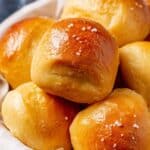
Soft and Buttery Parker House Rolls Recipe
- Prep Time: 20 minutes
- Cook Time: 20 minutes
- Total Time: 1 hour 40 minutes
- Yield: 12 rolls 1x
- Category: Baking
- Method: Baking
- Cuisine: American
Description
These Soft and Buttery Parker House Rolls are fluffy, tender, and enriched with butter for an irresistibly rich flavor. Perfect as a side for any meal or for making sliders, these classic rolls feature a slight fold that creates a distinct shape. With simple ingredients like yeast, milk, butter, and flour, they’re easy to make at home, yielding warm, golden-brown rolls that melt in your mouth.
Ingredients
Yeast Mixture
- 2 ¼ teaspoons active dry yeast
- ¼ cup warm water (110°F)
Wet Ingredients
- 1 cup whole milk (warmed to 110°F)
- 2 tablespoons sugar
- 1 teaspoon salt
- ¼ cup unsalted butter (melted, plus more for brushing)
Dry Ingredients
- 3 ½ cups all-purpose flour (plus more for dusting)
Instructions
- Activate the yeast: In a small bowl, dissolve yeast in warm water and let sit for about 5 minutes until the mixture becomes frothy, indicating that the yeast is active.
- Mix wet ingredients: In a large bowl, combine the warm milk, sugar, salt, melted butter, and the activated yeast mixture. Stir well until the sugar dissolves completely.
- Add flour to form dough: Gradually add the all-purpose flour to the wet mixture, stirring until a soft dough forms. The dough should be slightly sticky but manageable.
- Knead the dough: Turn the dough onto a lightly floured surface and knead for 5-7 minutes until it becomes smooth and elastic. Alternatively, use a stand mixer fitted with a dough hook to knead the dough.
- First rise: Transfer the dough to a greased bowl, cover with a clean kitchen towel, and let it rise in a warm place for about 1 hour or until doubled in size.
- Shape the rolls: After the dough has doubled, punch it down. Roll it out on a lightly floured surface into a 1/2-inch thick rectangle. Cut the dough into 12 pieces. Fold each piece in half and gently press the fold to secure the shape.
- Second rise: Place the formed rolls on a greased baking sheet about 2 inches apart. Cover again with a towel and let them rise for another 30 minutes.
- Preheat oven: Set the oven to 350°F (175°C) to preheat while the rolls are rising.
- Bake the rolls: Brush the rolls with melted butter to give them a golden crust. Bake for 15-20 minutes, or until the tops are golden brown and the rolls sound hollow when tapped.
- Final butter brush and serve: Remove the rolls from the oven and immediately brush with additional melted butter. Serve warm for the best flavor and texture.
Notes
- Use warm ingredients (milk and water) at about 110°F to properly activate the yeast without killing it.
- For softer rolls, brush melted butter both before and after baking.
- If you don’t have a stand mixer, kneading by hand is perfectly fine.
- Make sure not to cut the dough too thick or too thin when shaping; 1/2 inch thickness gives the best rise and texture.
- These rolls freeze well: cool completely, then freeze in an airtight container for up to one month. Reheat before serving.

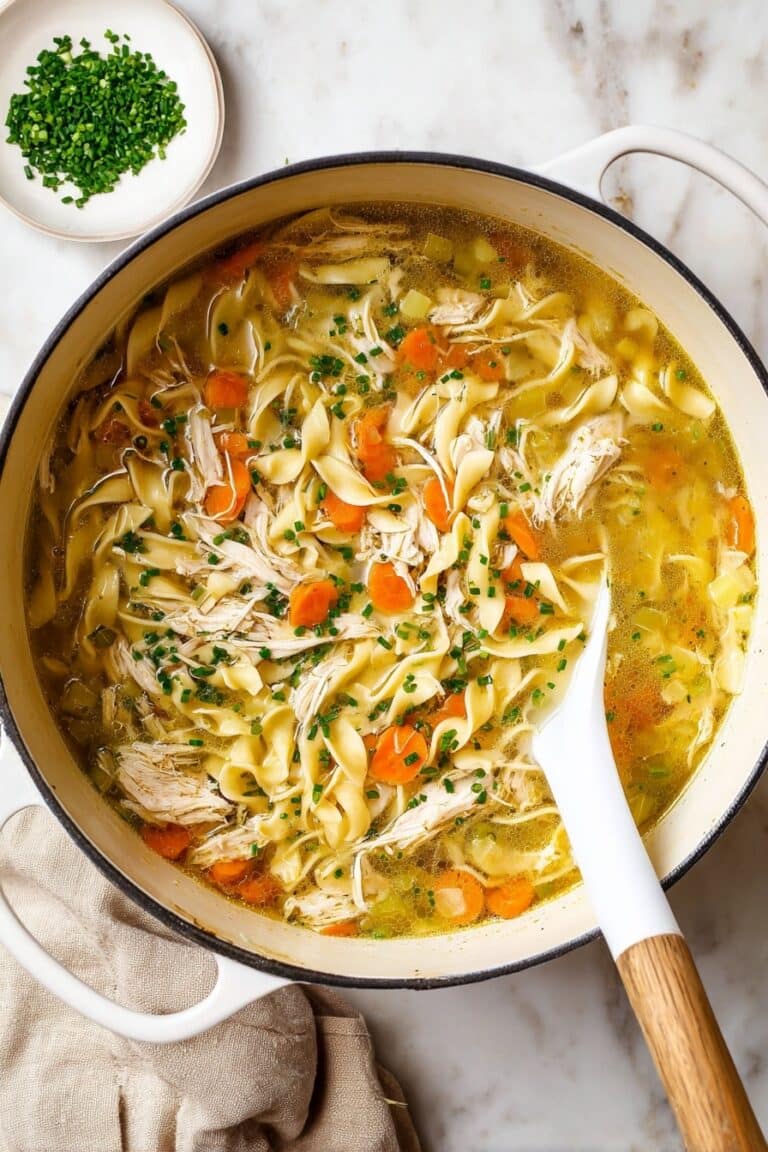
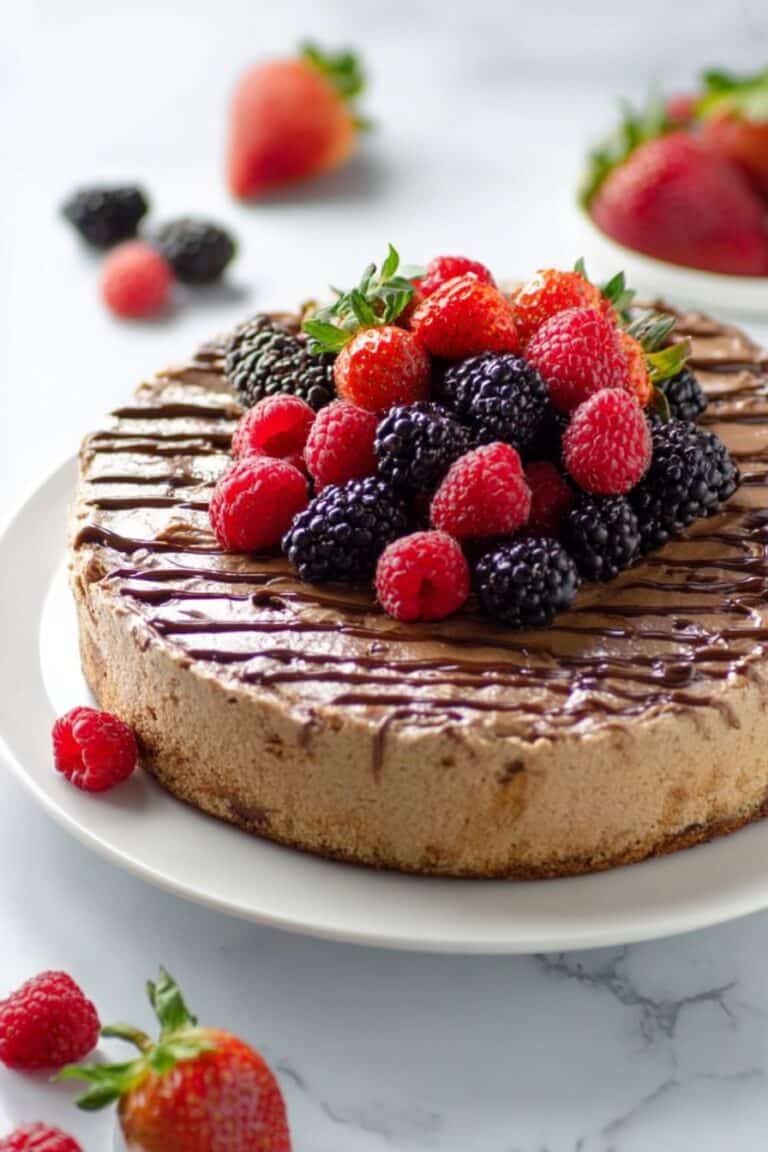
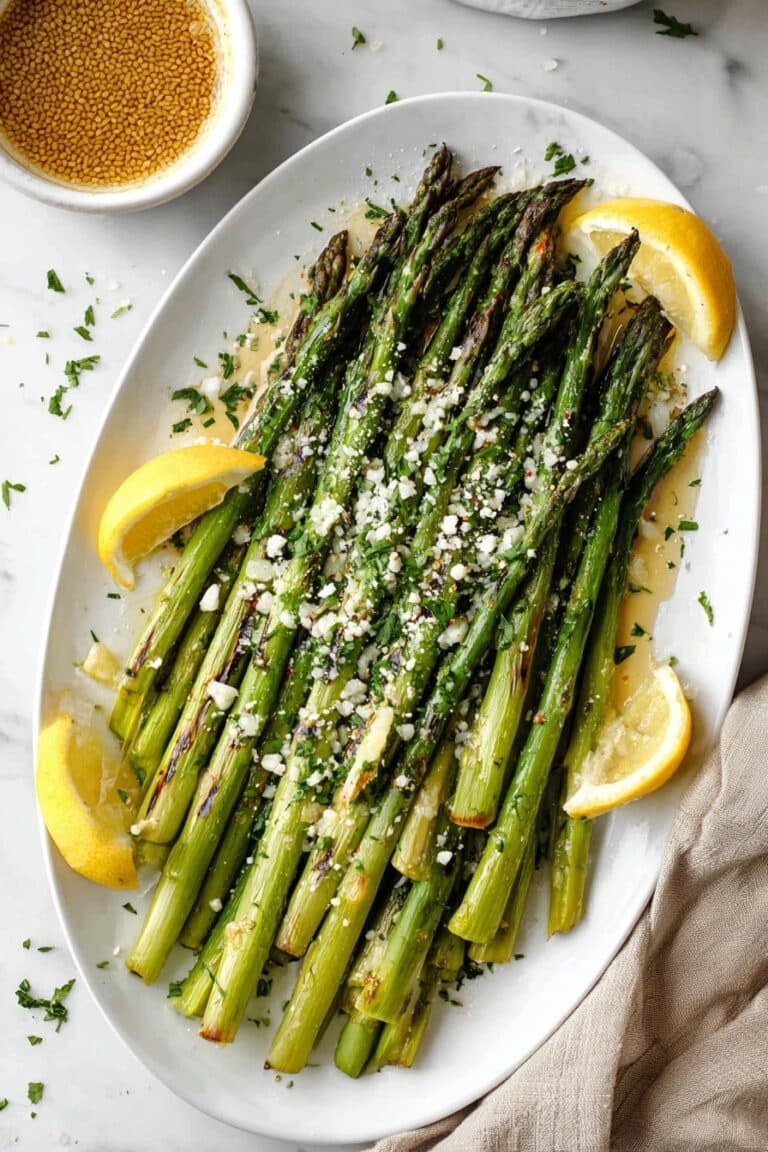
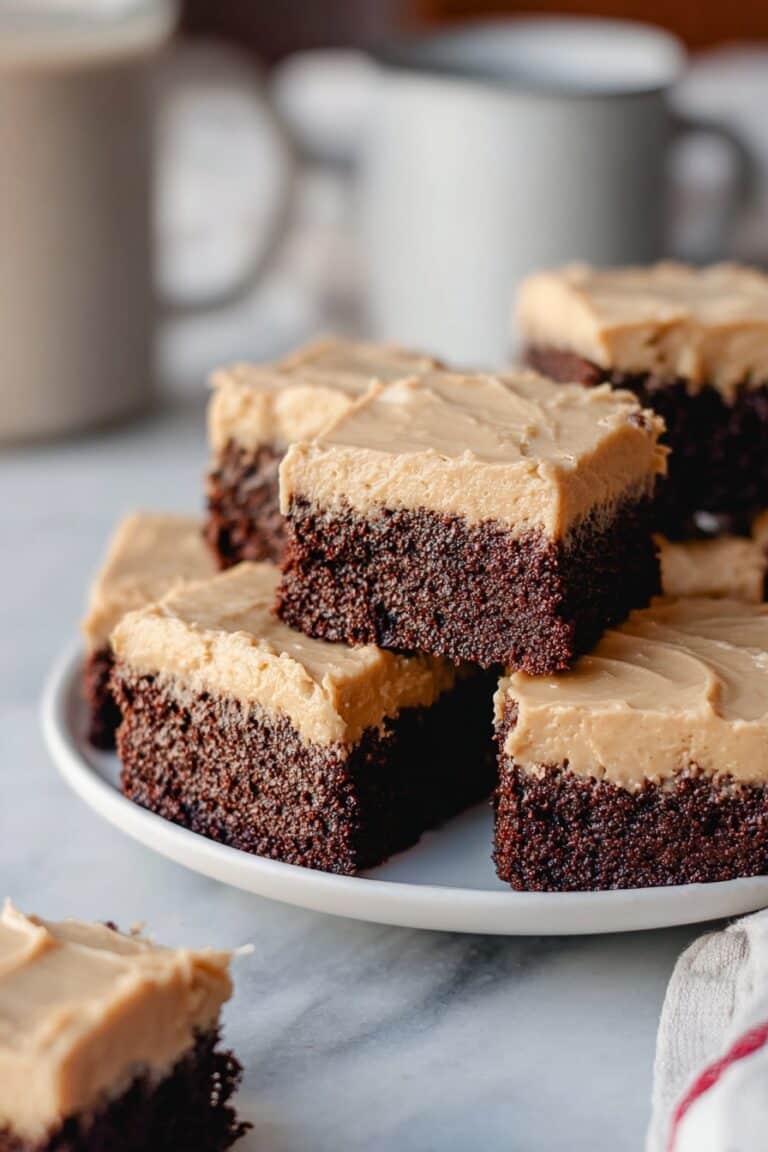

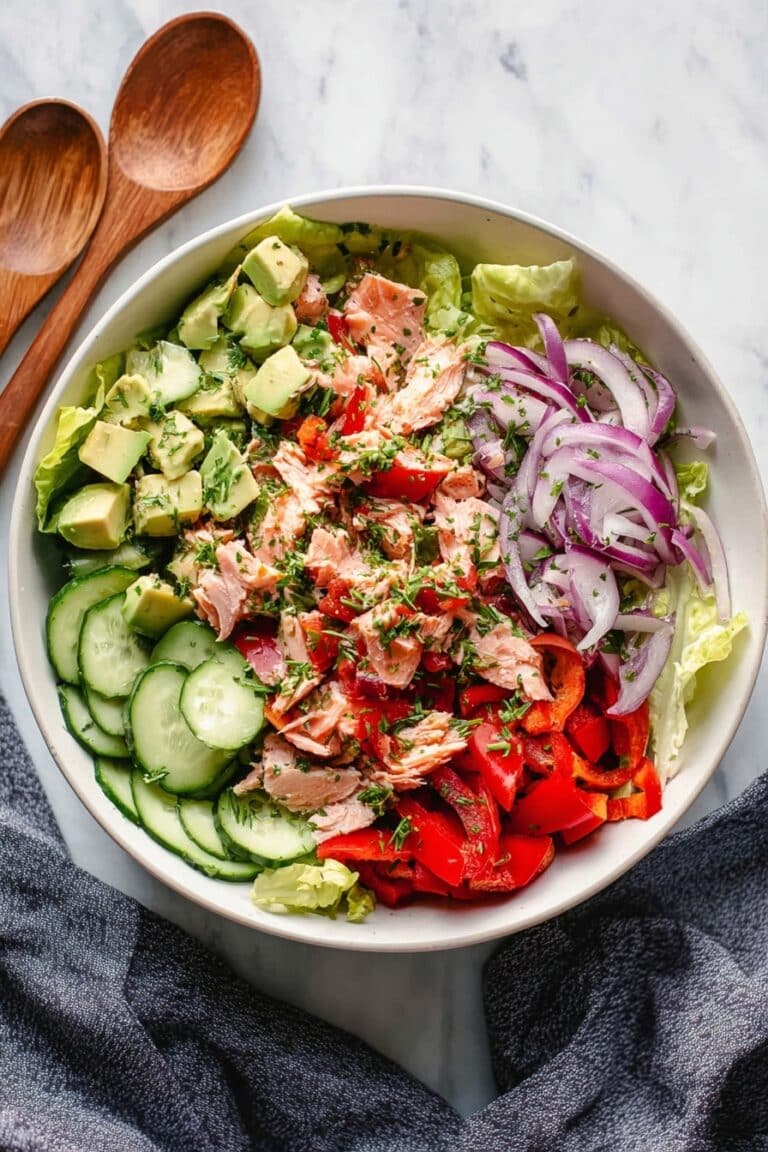

Pk68…hmm, interesting. I don’t know much about it yet, but I’m always willing to check out something new. Worth researching, maybe? Give it a look see: pk68